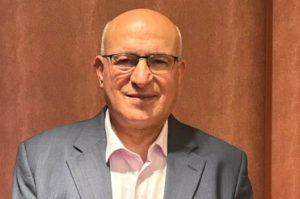Malaria Vaccine Cuts Risk in Infants by Half
A study of over 15,000 children and newborns in over 7 African countries finds a new malaria vaccine may cut malaria infection in half in newborns, while reducing life-threatening cases by 47 percent.
The vaccine, RTS,S/AS01 or Mosquirix, although technically still in trials, could become the world’s first successful malaria vaccine. The latest results were published by the New England Journal of Medicine today.
This was one of the largest experimental trials to date: the trial included 15,640 children aged 6-12 weeks and 5-17 months. Infants and toddlers at 11 sites in Burkina Faso, Gabon, Kenya, Malawi, Mozambique, and Tanzania were vaccinated.
A trifecta of global health powerhouses united their resources to fund, research, and produce the life-saving vaccine: the Program for Appropriate Technology in Health (PATH for short) oversaw the vaccine’s development along with GlaxoSmithKline, the latter contributing Joe Cohen, a scientific researcher with 24 years’ experience trying to vaccinate against malaria.
GlaxoSmithKline estimates that they spent a hefty $300 million on the vaccine’s research and development, with the Bill and Melinda Gates Foundation giving about $200 million.
In spite of the monumental cost, GlaxoSmithKline’s chief executive officer Andrew Witty has said that GSK “[has] no intention of making a profit.” They’ve pledged to sell the Mosquirix at just 5 percent over the cost of the vaccine’s production.
Although the results of the vaccination trials have been presented to the World Health Organization for scrutiny, scientists are still determining whether a nearly 50 percent success rate is satisfactory to distribute Mosquirix in African countries. In comparison, vaccines of measles and rotavirus are up between 70 percent and 90 percent effective.
If the World Health Organization issues a recommendation for the vaccine to be used, it could be implemented into African health care systems as early as 2015.
Many African children don’t have that long to wait. Malaria sickens over 200 million people a year, killing nearly 800,000, the majority of them on the African continent.
Bill Gates highlighted the need for the vaccine, saying, “These results demonstrate the power of working with partners to create a malaria vaccine that has the potential to protect millions of children from this devastating disease."
After 25 years researching a cure for malaria, scientist Joe Cohen said he had “never dreamed it would take this long."




























